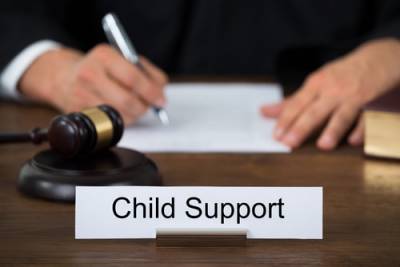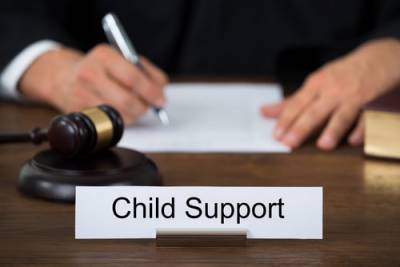Recent Blog Posts
4 Things to Consider When Making a Parenting Time Schedule
 When parents divorce, children will likely share time between the two parents. To avoid having the important decisions related to your children decided by a judge, you and your spouse are encouraged to work together to negotiate a parenting plan, also known as the allocation of parental responsibilities. In addition to deciding how important decisions regarding the children will be made, the plan will also include a parenting time schedule. This schedule will allocate when each parent has physical care of the children, during which time they have the sole responsibility to make routine daily decisions as well as emergency decisions about the children’s health and safety.
When parents divorce, children will likely share time between the two parents. To avoid having the important decisions related to your children decided by a judge, you and your spouse are encouraged to work together to negotiate a parenting plan, also known as the allocation of parental responsibilities. In addition to deciding how important decisions regarding the children will be made, the plan will also include a parenting time schedule. This schedule will allocate when each parent has physical care of the children, during which time they have the sole responsibility to make routine daily decisions as well as emergency decisions about the children’s health and safety.
Parenting Time Schedule Tips for Illinois Families
When negotiating the parenting time schedule with your spouse, it can be difficult to put the difficulties of the divorce behind you and cooperate. However, it is helpful to take a step back and remember that the schedule should be set up to help your children succeed in their new living environment.
Three Actions That Could Affect Your Spousal Support Payments
 During an Illinois divorce, the spouses may agree on, or the court may order the payment of spousal support payments, also known as spousal maintenance or alimony, from one party to another. These payments are to ensure that the receiving party is financially secure after the divorce is finalized. The amount and length of the payments are based on several factors, including income, length of the marriage, the receiving spouse’s education and training, any impairment to their becoming self-sufficient, and other factors. However, future modifications to the payments are possible.
During an Illinois divorce, the spouses may agree on, or the court may order the payment of spousal support payments, also known as spousal maintenance or alimony, from one party to another. These payments are to ensure that the receiving party is financially secure after the divorce is finalized. The amount and length of the payments are based on several factors, including income, length of the marriage, the receiving spouse’s education and training, any impairment to their becoming self-sufficient, and other factors. However, future modifications to the payments are possible.
Changes in Income, Marital Status, and Health Could All Qualify
Once the payment amount and length are set, life goes on and changes can and will happen to both parties. There are several factors that can qualify for a modification to these payments.
These include:
Increased Charges Coming for Organized Retail Theft
 Governor J.B. Pritzker has signed a new bill into law that targets organized retail theft in Illinois. The law, known as the INFORM Act, will go into effect on January 1, 2023, and will allow the Illinois attorney general to charge anyone who knowingly participates in an organized retail theft of more than $300 with a Class 3 felony. Offenders who engage in organized theft from multiple establishments could be charged with a Class 2 felony.
Governor J.B. Pritzker has signed a new bill into law that targets organized retail theft in Illinois. The law, known as the INFORM Act, will go into effect on January 1, 2023, and will allow the Illinois attorney general to charge anyone who knowingly participates in an organized retail theft of more than $300 with a Class 3 felony. Offenders who engage in organized theft from multiple establishments could be charged with a Class 2 felony.
The bill comes as a response to increasing retail theft, including by organized crime rings, and as a reversal of a movement in recent years in some jurisdictions to lower the charges of shoplifting and other retail theft crimes. The Cook County State’s Attorney has not yet commented on how the law would impact Cook County.
The bill will give one state’s attorney jurisdiction when crimes by the same individual or group occur in more than one county. It will create a statewide intelligence platform to help law enforcement track organized groups and provide additional funding for attorneys and investigators. It also focuses on online third-party marketplaces, where much of the stolen merchandise ends up for sale.
My Ex Has Stopped Making Child Support Payments
 After a divorce, it can be tough for a single parent to make ends meet. If you have the bulk of parental responsibilities, you could be depending on the money that your ex-spouse has been ordered to pay in child support to provide your family with food, clothing, and other necessities. If those payments suddenly stop, you could be faced with a real financial struggle. Fortunately, you do have different options to enforce the child support order and get the payments moving again.
After a divorce, it can be tough for a single parent to make ends meet. If you have the bulk of parental responsibilities, you could be depending on the money that your ex-spouse has been ordered to pay in child support to provide your family with food, clothing, and other necessities. If those payments suddenly stop, you could be faced with a real financial struggle. Fortunately, you do have different options to enforce the child support order and get the payments moving again.
Three Steps to Take to Get Your Child Support Payments
There are different steps to take, whether payments are coming in sporadically or not at all, to enforce your court-ordered child support. The most common and effective ways are:
- Reach out to your ex-spouse directly – If you are still on relatively good terms, you can reach out directly to ask about the payments. While they may try to explain why they have been late, remember, the decision to excuse payments is not yours to make since the payments are through a court order. It is best to keep a record of all communications.
Should We Consider an Uncontested Divorce?
 For some couples who are ending their marriage on mutual terms, the divorce process can proceed in a more collaborative manner. You both may agree that it is time to end your marriage, and largely agree on how to divide your assets and responsibilities. This is certainly not the case in many divorces, but for those couples who do, an uncontested divorce may be an option.
For some couples who are ending their marriage on mutual terms, the divorce process can proceed in a more collaborative manner. You both may agree that it is time to end your marriage, and largely agree on how to divide your assets and responsibilities. This is certainly not the case in many divorces, but for those couples who do, an uncontested divorce may be an option.
Benefits of an Uncontested Divorce
Even in an uncontested divorce, a couple must come to a resolution on many key issues, including dividing their marital property and whether one spouse will provide spousal support or alimony to the other. Marital property commonly divided in a divorce can include large assets including retirement savings and the marital home. If the couple has children, they additionally must address the allocation of parental responsibilities, how parenting time will be divided, and how child support payments will be made and at what amount. These do not all have to be decided before you start the process, but it helps when there are no major points of contention.
Can I Change My Child Support Payments if I Lose my Job?
 Losing your job or having your salary cut can present you with several financial challenges. If you have been through a divorce and are providing child support, you may be wondering how you will keep your required payments going. When tough times hit, you do have the option to modify your monthly payments to keep providing for your children while adjusting to your new situation. Working with a knowledgeable attorney who can help you through the modification process is helpful.
Losing your job or having your salary cut can present you with several financial challenges. If you have been through a divorce and are providing child support, you may be wondering how you will keep your required payments going. When tough times hit, you do have the option to modify your monthly payments to keep providing for your children while adjusting to your new situation. Working with a knowledgeable attorney who can help you through the modification process is helpful.
Child Support Payment Calculations in Illinois
After a divorce, both parents are responsible for providing for their children. This includes their basic needs like food, housing, health, clothing, and education. During the divorce process, formulas are used to calculate how much each spouse should be providing for child support. The level for each parent is determined by combining their total net income and allocating an equitable share to each parent. While they are primarily based on each spouse’s income at the time, they also consider the allocation of parental responsibilities, the number of children, the previous standard of living before the divorce, and the needs of the children. The parent who spends more time and money caring for the children, known as the custodial parent, will typically receive monthly payments from the non-custodial parent.
What Constitutes Shoplifting in Illinois?
 It probably comes as no surprise that retail theft is taken seriously by retailers and law enforcement in Illinois. To protect merchandise at stores and retailers, Illinois has some of the strictest penalties for shoplifting in the country. While you may commonly think of shoplifting as sneaking an item out of a store in a pocket or under a coat, Illinois law specifies a number of actions that constitute retail theft or shoplifting.
It probably comes as no surprise that retail theft is taken seriously by retailers and law enforcement in Illinois. To protect merchandise at stores and retailers, Illinois has some of the strictest penalties for shoplifting in the country. While you may commonly think of shoplifting as sneaking an item out of a store in a pocket or under a coat, Illinois law specifies a number of actions that constitute retail theft or shoplifting.
Retail Theft in Illinois
Under Illinois law, the following actions constitute shoplifting or retail theft:
- Sneaking merchandise out of a store without paying for it. This is a classic example of shoplifting.
- Changing the price tag or label of an item to make it appear to cost less than it should.
- Hiding merchandise in other merchandise in order to sneak it out of the store.
- Under-ringing an item at a register. This charge had been more commonly used against store employees when buying items for themselves or for their friends or acquaintances. However, it is also becoming more common with the advent of self-checkout lines in grocery stores and other retailers
What Can I Do If My Spouse Is Wasting Our Money During a Divorce?
 Disagreements over finances are one of the leading causes of divorce in the United States. Animosity can only grow if the couple is heading down the road to divorce and one spouse is intentionally spending the couple’s assets wastefully. This practice, known as dissipation, can be considered by the court during the divorce process and impact the final order from the judge.
Disagreements over finances are one of the leading causes of divorce in the United States. Animosity can only grow if the couple is heading down the road to divorce and one spouse is intentionally spending the couple’s assets wastefully. This practice, known as dissipation, can be considered by the court during the divorce process and impact the final order from the judge.
Dissipation in Illinois Divorce Cases
Illinois is an equitable distribution state for dividing marital assets during a divorce. Rather than splitting a couple’s assets evenly, each spouse will receive the amount that the court decides is fair based on a number of factors. When a spouse is accused of dissipation, they may be trying to waste a portion of the existing marital assets before the division has been finalized in order to deprive the other spouse of that asset. The action does not need to occur during the divorce process but during the time when the marriage has undergone “an irretrievable breakdown.” While it is difficult to stop such spiteful behavior before it occurs, the court can consider those actions when making their final divorce order.
Challenges to Consider During a Gray Divorce
 As divorce after the age of 50 becomes more common, it is becoming clear that the issues facing couples who split later in life may be different from those whose divorce occurs in their twenties, thirties, or forties. Child custody and child support are less likely to be issues, unlike if you had divorced when your kids were younger. However, new challenges on how to divide marital assets, handle spousal support, and plan for retirement savings and social security are more common.
As divorce after the age of 50 becomes more common, it is becoming clear that the issues facing couples who split later in life may be different from those whose divorce occurs in their twenties, thirties, or forties. Child custody and child support are less likely to be issues, unlike if you had divorced when your kids were younger. However, new challenges on how to divide marital assets, handle spousal support, and plan for retirement savings and social security are more common.
Three Common Issues When Couples Divorce Near Retirement
-
Spousal maintenance or alimony – While alimony itself is not an uncommon issue to tackle during a divorce, there are additional challenges for older individuals. If one of the spouses has limited or no recent work experience, it can be more difficult to get the opportunities to learn new skills or receive training to start or restart a career. This has a bigger influence on the calculation of spousal maintenance.
What Happens to the Marital Home in an Illinois Divorce?
 A major part of the decision-making process of any divorce involves the division of marital property. While savings, retirement accounts, and other assets may have significant value, the marital home is often the largest single asset any divorcing couple owns. As such, it can become a major point of contention during the divorce process. Depending on your situation and preferences, our experienced divorce attorneys can help you retain your house after a divorce or receive a fair settlement , either through its sale or a settlement during the divorce process.
A major part of the decision-making process of any divorce involves the division of marital property. While savings, retirement accounts, and other assets may have significant value, the marital home is often the largest single asset any divorcing couple owns. As such, it can become a major point of contention during the divorce process. Depending on your situation and preferences, our experienced divorce attorneys can help you retain your house after a divorce or receive a fair settlement , either through its sale or a settlement during the divorce process.
Options for Dealing with Your Home
Since Illinois is an equitable distribution state, meaning each spouse receives a fair, not equal share of the marital estate, a home can often pose a problem during the process. Depending on the length of the marriage, how much equity the couple has in the house, and the value of their other assets, the house may have a greater value than the rest of their assets combined. Therefore, there are different solutions to consider on how to equitably handle the house and its value during the division of marital property. These options include:





